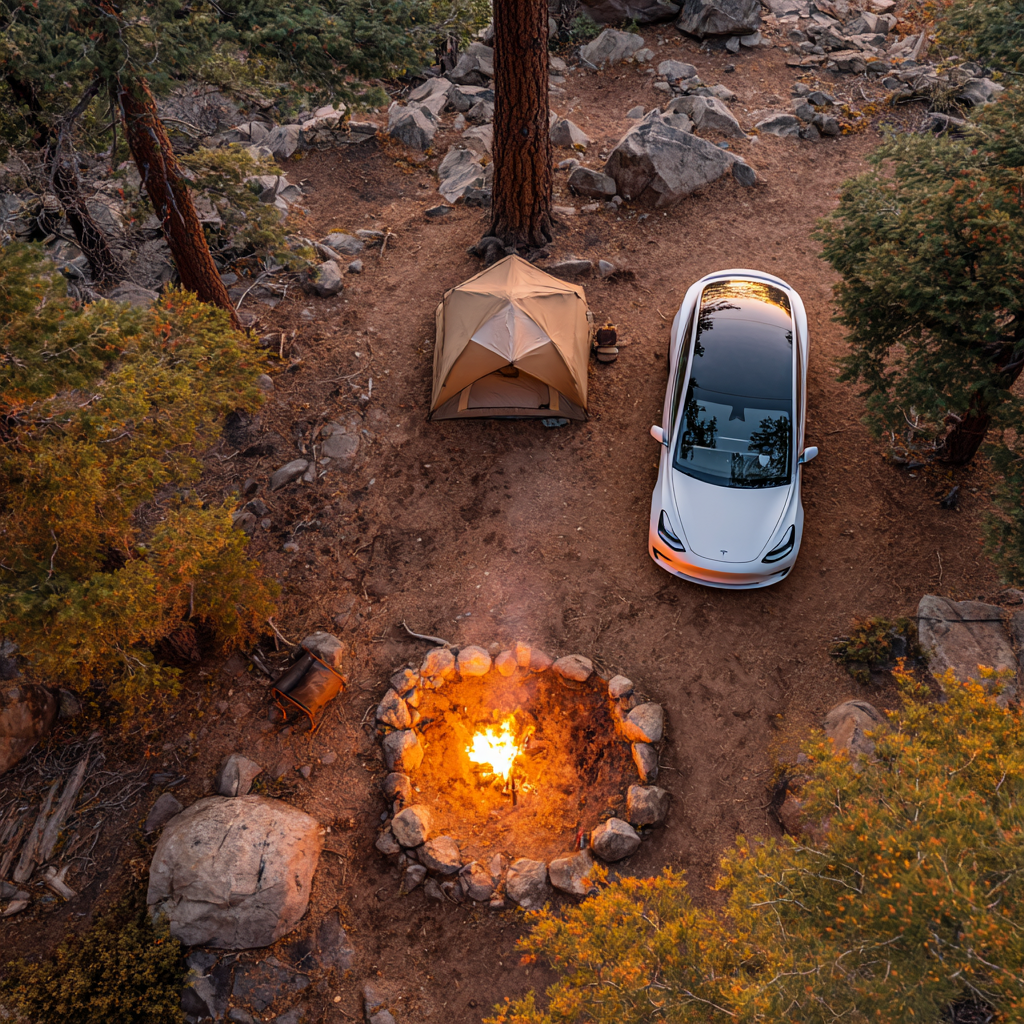Car camping is one of the easiest and most enjoyable ways to start your outdoor journey. You get the thrill of being in nature—without giving up the comfort of your vehicle. Whether you’re heading to a national park or a quiet forest nook, a little preparation can go a long way. Here are 10 beginner-friendly car camping tips to help you stay safe, organized, and relaxed while you’re out there.
1. Plan Ahead (Way Ahead)
Great camping starts at home. Before you hit the road, take the time to:
- Research campsites in advance—many require reservations, sometimes 6–12 months ahead!
- Find out if you need a permit to camp in the area.
- Double-check for fire restrictions, food storage rules, or seasonal closures.
- Plan meals by writing down what you’ll eat for breakfast, lunch, and dinner each day.
📝 Pro tip: Keep meals simple but satisfying. A little prep work at home (like chopping veggies or marinating meat) will save you tons of effort at the site.
2. Know the Surrounding Area
Even if you plan to stay at a popular campground, you should still know:
- Where the nearest gas station, grocery store, and urgent care center are.
- How to get there in case your phone dies or you lose GPS signal.
Save these locations to your map app offline, or print them—just in case.
3. Share Your Itinerary
This one’s easy and often overlooked: Tell someone where you’re going.
- Share your campsite location, expected return date, and check in when you’re back.
- It’s a basic safety step that becomes vital in emergencies.
4. Have Backup Navigation
Smartphones are great—until they don’t work. If you’re camping in remote areas, don’t rely only on Google Maps. Make sure to:
- Download offline maps or use apps like Gaia GPS or AllTrails.
- Print directions to your campground.
- Carry a topographic map and compass as backups.
- Even a simple road atlas can be a lifesaver when you’re off-grid.
5. Stay Organized
Keeping your gear in order will reduce stress and wasted time. Use bins or labeled bags for:
- Food and kitchen gear
- Clothing (organize by type or day)
- Sleeping items
- Safety and first aid
🚙 If you’re camping often, consider a more permanent trunk setup with drawers or dividers. It’s a game-changer.
6. Prepare for the Unexpected
Things don’t always go as planned, especially in nature. Be ready by packing:
- A jumper cable or battery pack
- A first aid kit
- A spare tire and tools
- Extra food and water
💧 Bonus tip: Bring a water filtration system (like a Sawyer Squeeze) in case you run out of clean water.
7. Be a Respectful Neighbor
When camping at popular sites, always:
- Keep noise levels low, especially at night.
- Respect quiet hours.
- Keep pets and kids in your own space.
Everyone’s out there to enjoy nature—so let’s not ruin it for each other.
8. Don’t Forget the "Luxury" Items
You’re not backpacking, so go ahead—add a little comfort:
- A full-size pillow
- A proper coffee setup
- A cozy blanket or camp chair
- Board games, cards, or a Bluetooth speaker
🏕️ Want to upgrade your camping sleep without going full glamping? Consider a memory foam camping mattress like the one from Hazli. It's designed for car campers who value a home-like sleeping experience while still enjoying nature. Just roll it out in your tent or vehicle, and you’ll wake up refreshed—not stiff.
9. Pack Out Everything (Yes, Everything)
Leave No Trace is more than just a motto—it’s a must.
- Bring trash bags and secure them (wind is no joke).
- Check for micro-trash like wrappers, twist ties, and bottle caps.
- Never leave behind food scraps—they attract wildlife and damage the ecosystem.
🎒 Also double-check food and trash storage regulations for your area.
10. Disconnect and Be Present
One of the best parts of camping is how quickly it helps you decompress.
- Turn on airplane mode and give yourself a break from screens.
- Spend a day without a schedule: read, nap, cook slowly.
- Take time at night to stargaze—you might catch a meteor shower or shooting stars.
- Breathe deep. Nature has a way of putting things in perspective.
🌌 If you’re away from city lights, look up at the stars. It's one of those things that photos can’t do justice—you just have to experience it.
Ready to Hit the Road?
Camping doesn't have to be complicated. With a bit of prep and the right mindset, it can be one of the most rewarding ways to unwind, reset, and reconnect with what really matters.
Whether you’re packing your car for a weekend escape or planning a longer journey, remember: keep it simple, stay safe, and enjoy the journey.

